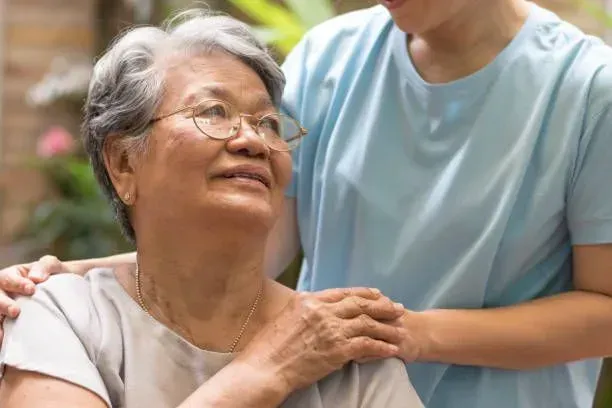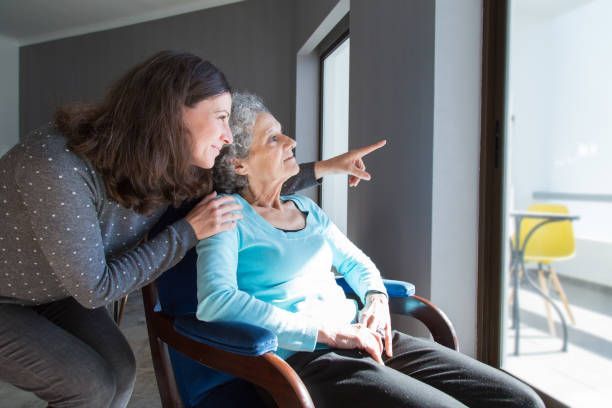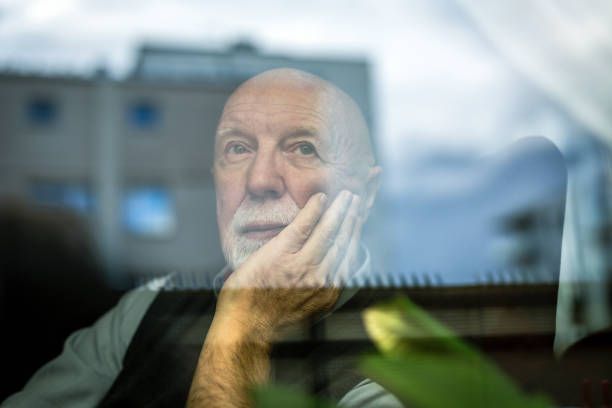What is Palliative Home Care?
What is Palliative Home Care?
Experienced home health aides are invaluable for in-home palliative care support, providing essential hands-on care and emotional assistance that significantly enhance patients' quality of life. Their expertise in managing daily activities such as bathing, dressing, and feeding ensures that patients maintain their dignity and comfort. Additionally, their vigilant monitoring and prompt reporting of any health changes allow for timely medical interventions, preventing complications. These aides offer much-needed companionship and emotional support, helping to alleviate the feelings of isolation and stress that often accompany serious illnesses. Overall, their skilled and compassionate care contributes to a more holistic and effective palliative care experience at home.

Are You Searching for a Home Care Agency
Near Me for Palliative Home Health Aide Support?
Palliative home care is a specialized form of medical care aimed at providing relief from the symptoms and stress of serious illnesses. Unlike curative treatments, palliative care focuses on improving the quality of life for patients and their families by addressing physical, emotional, and spiritual needs. This type of care can be provided alongside curative treatments or as the main focus of care for those with chronic or life-limiting conditions.
In this article, we review the origins and evolution of palliative care, identify who can benefit from it, outline the specific benefits it offers, and detail what palliative care encompasses. Additionally, we will highlight the crucial role that home care agencies and home health aides play in delivering effective palliative care, with a particular focus on 7 Day Home Care's services in Manhattan, Queens, Brooklyn, and Long Island, New York.
The Genesis of Palliative Care
The concept of palliative care can be traced back to the mid-20th century. The term "palliative" is derived from the Latin word "palliare," meaning to cloak or to alleviate symptoms without curing the underlying disease. Historically, the roots of palliative care are closely linked to hospice care, which began to take form in the 1960s.
The modern hospice movement was pioneered by Dame Cicely Saunders, a British nurse, social worker, and physician. In 1967, she founded St. Christopher's Hospice in London, which became a model for palliative care worldwide. Saunders introduced the concept of "total pain," which includes physical, emotional, social, and spiritual suffering. Her work emphasized the need for compassionate care that goes beyond merely treating physical symptoms.
Over the decades, palliative care has evolved from its hospice origins to become a recognized medical specialty. The World Health Organization (WHO) has endorsed palliative care as an essential component of healthcare, advocating for its integration into healthcare systems globally. In the United States, the establishment of the American Academy of Hospice and Palliative Medicine (AAHPM) in 1988 marked a significant milestone in the formal recognition and development of palliative care as a medical discipline.
What is Palliative Care?
Comprehensive and Personalized Care
Palliative care is a holistic approach that focuses on providing relief from the symptoms and stress of a serious illness. It is patient-centered and family-oriented, with care plans tailored to meet the unique needs of each individual. Key components of palliative care include:
- Symptom Relief: Managing pain, nausea, fatigue, and other physical symptoms.
- Emotional Support: Providing counseling and support to address anxiety, depression, and other emotional issues.
- Spiritual Care: Addressing spiritual or existential concerns, respecting the patient’s beliefs and values.
- Social Support: Helping with practical issues, such as housing, transportation, and financial concerns.
- Advanced Care Planning: Assisting with decisions about future healthcare, including advance directives and living wills.
Palliative care can be provided alongside curative or life-prolonging treatments. It is not limited to end-of-life care but can be integrated at any stage of a serious illness. This approach ensures that patients receive comprehensive care that addresses all aspects of their well-being.
Who Can Benefit from Palliative Care?
Patients with Serious Illnesses
Palliative care is designed for individuals of any age who are dealing with serious illnesses, including but not limited to:
- Cancer: Patients undergoing treatment or those in advanced stages.
- Heart Disease: Individuals with congestive heart failure or severe cardiac conditions.
- Lung Diseases: Those suffering from chronic obstructive pulmonary disease (COPD) or other serious respiratory conditions.
- Neurological Disorders: Patients with conditions such as Parkinson’s disease, multiple sclerosis, or amyotrophic lateral sclerosis (ALS).
- Kidney Failure: Individuals on dialysis or with end-stage renal disease.
- Liver Disease: Patients with chronic liver conditions, including cirrhosis.
Palliative care also extends support to families and caregivers, helping them manage the emotional, psychological, and practical challenges of caring for a loved one with a serious illness. This holistic approach ensures that the needs of both patients and their support systems are addressed.
How Can One Benefit from Palliative Care?
One of the primary benefits of palliative care is effective symptom management. This includes relief from pain, shortness of breath, fatigue, nausea, loss of appetite, and other distressing symptoms. By addressing these issues, palliative care enhances the patient's comfort and overall quality of life.
Living with a serious illness can take a significant emotional toll. Palliative care teams provide counseling and support to help patients and their families cope with anxiety, depression, and other emotional challenges. This support can be instrumental in improving mental health and fostering a sense of well-being.
Palliative care specialists play a crucial role in facilitating communication between patients, families, and healthcare providers. They help clarify the patient’s goals and preferences, ensuring that care plans align with their values and wishes. This collaborative approach aids in informed decision-making and helps navigate complex medical choices.
Palliative care involves a multidisciplinary team of healthcare professionals, including doctors, nurses, social workers, and chaplains, who work together to provide comprehensive care. This team approach ensures that all aspects of the patient’s needs are addressed in a coordinated and cohesive manner.
In addition to medical and emotional support, palliative care can also assist with practical aspects of daily living. This includes help with activities of daily living (ADLs), such as bathing, dressing, and eating, ensuring that patients can maintain as much independence and dignity as possible.
The Role of Home Care Agencies in Palliative Home Care
The Importance of an Experienced Home Care Agency and Home Health Aides
For many patients, receiving palliative care in the comfort of their own homes can significantly enhance their quality of life. Home care agencies play a vital role in delivering palliative care services, ensuring that patients receive the necessary support in a familiar and comforting environment.
Home care agencies like 7 Day Home Care offer a wide range of services to support palliative care patients, including:
- Home Care: Meal preparation, medication reminders, and monitor the patient’s condition.
- Personal Care: Assistance with activities of daily living, such as bathing, dressing, and grooming.
- Companionship: Providing emotional support and companionship to alleviate feelings of isolation and loneliness.
- Respite Care: Offering temporary relief to family caregivers, allowing them to rest and recharge.
- Coordination of Care: Ensuring seamless communication and coordination between different healthcare providers, including doctors, specialists, and therapists.
Home Health Aides and Palliative Home Care
Home health aides (HHAs) are integral members of the palliative care team. They provide hands-on care and support, helping patients with daily tasks and ensuring their comfort. The role of HHAs includes:
- Personal Care Assistance: Helping with bathing, dressing, feeding, and other personal care needs.
- Medication Reminders: Ensuring that patients take their medications on schedule.
- Mobility Support: Assisting with mobility, transfers, and exercises to maintain physical function.
- Emotional Support: Offering companionship and a listening ear, providing emotional comfort to patients and their families.
- Observation and Reporting: Monitoring the patient’s condition and reporting any changes to the nursing staff or care team.
7 Day Home Care Provides Palliative In-Home Care Support
7 Day Home Care, serving Manhattan, Queens, Brooklyn, and Long Island, New York, is dedicated to providing high-quality palliative home care services. Their team of skilled professionals works collaboratively to ensure that patients receive comprehensive and compassionate care. Key features of their services include:
- 24/7 Availability: Ensuring that care is accessible at all times, providing peace of mind to patients and families.
- Experienced Staff: Employing trained and experienced caregivers who are knowledgeable in palliative care practices.
- Customized Care Plans: Developing personalized care plans that cater to the unique needs and preferences of each patient.
- Holistic Approach: Addressing the physical, emotional, and spiritual needs of patients to enhance their quality of life.
Palliative home care is a vital service that provides comprehensive support to individuals with serious illnesses and their families. By focusing on symptom management, emotional support, and coordinated care, palliative home care aims to improve the quality of life for patients facing challenging health conditions. Home care agencies, particularly those like 7 Day Home Care, play a crucial role in delivering these services in a home setting, ensuring that patients receive the necessary care in a comfortable and familiar environment. Through the dedicated efforts of home health aides and the broader palliative care team, patients can experience enhanced comfort, dignity, and well-being during their care journey. 7 Day Home Care is licensed by the New York State Department of Health to provide in-home care services in Manhattan, Queens, Brooklyn, Nassau County, and Suffolk County, New York. Please call 516-408-0034, to learn more about our in-home palliative care support.
Brian Callahan
7 Day Home Care










